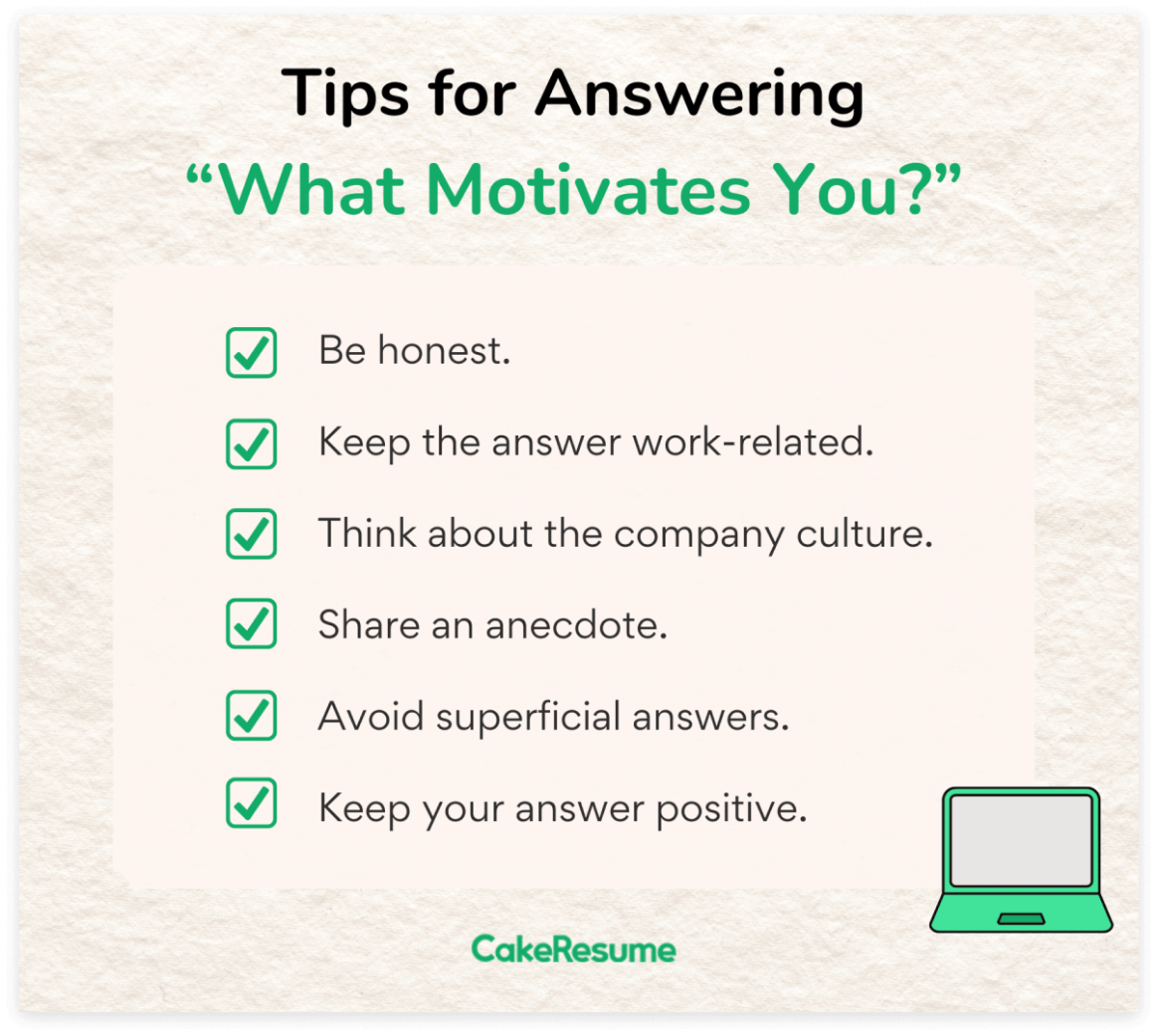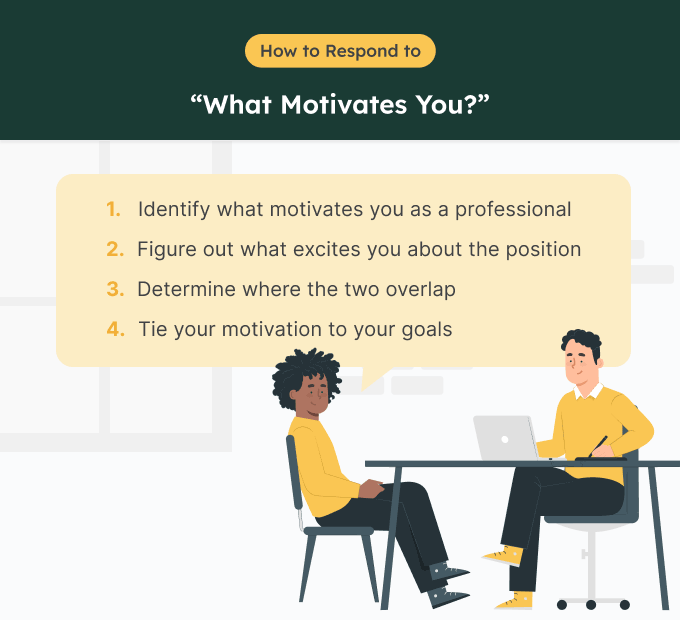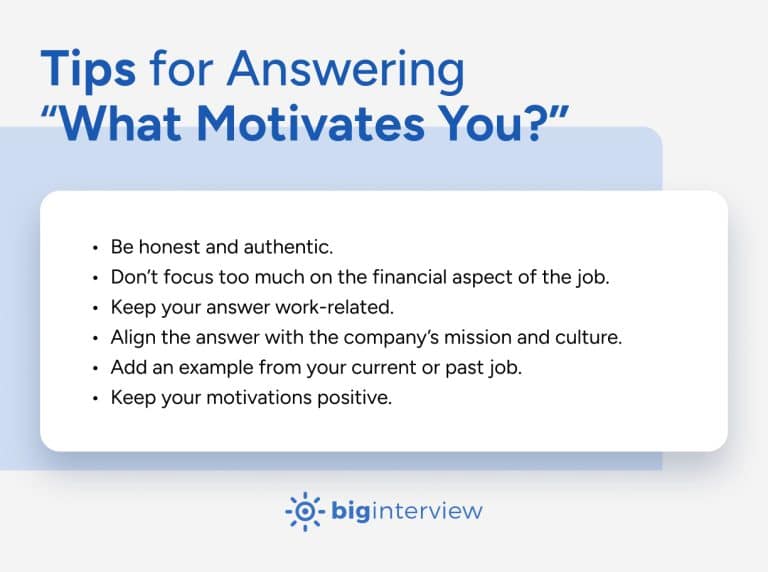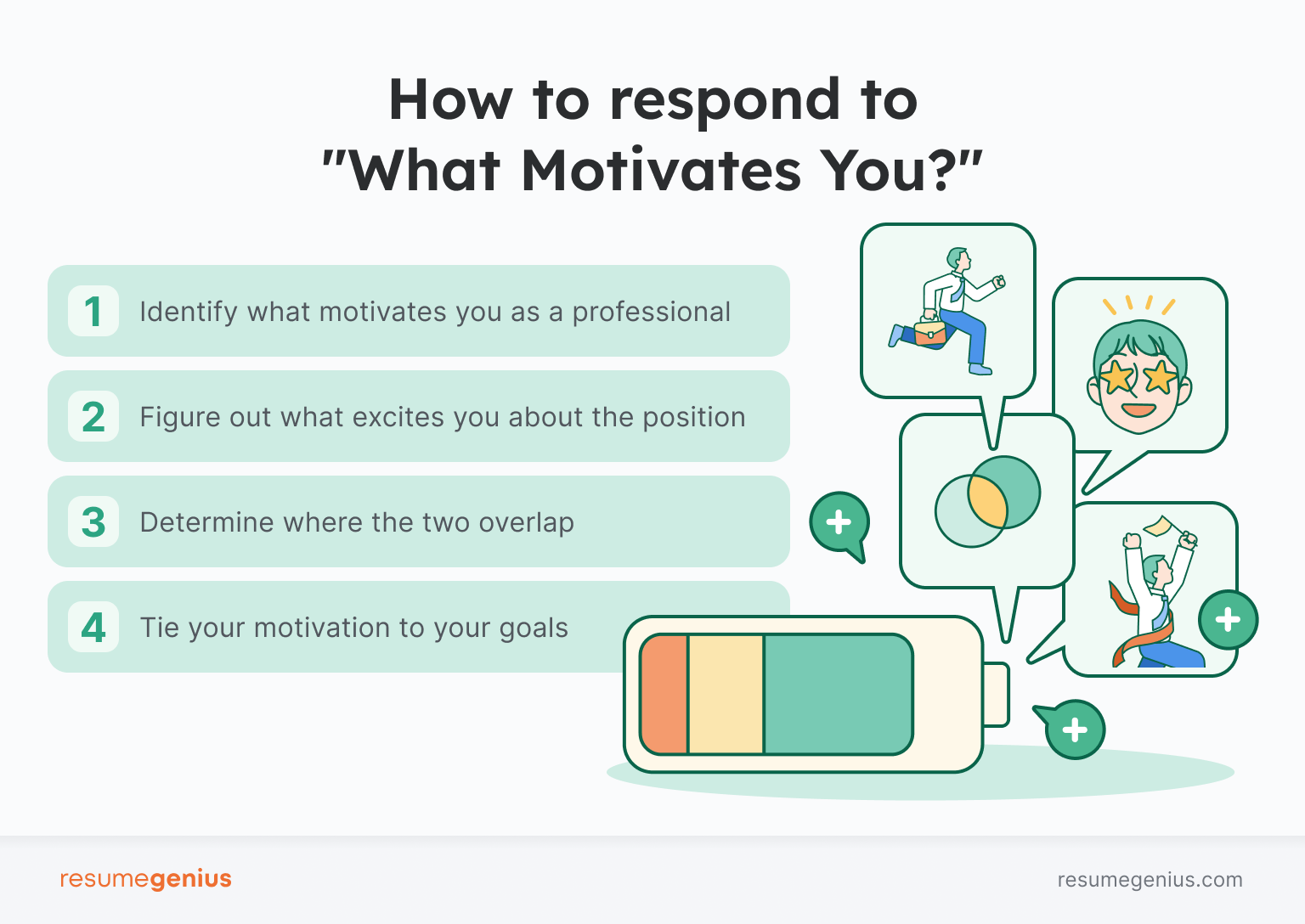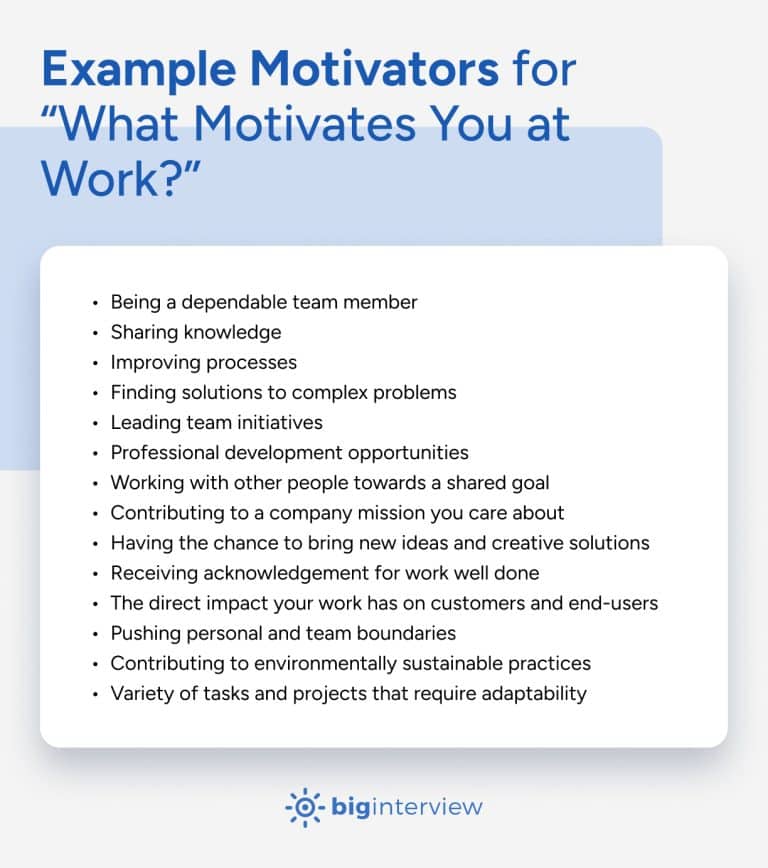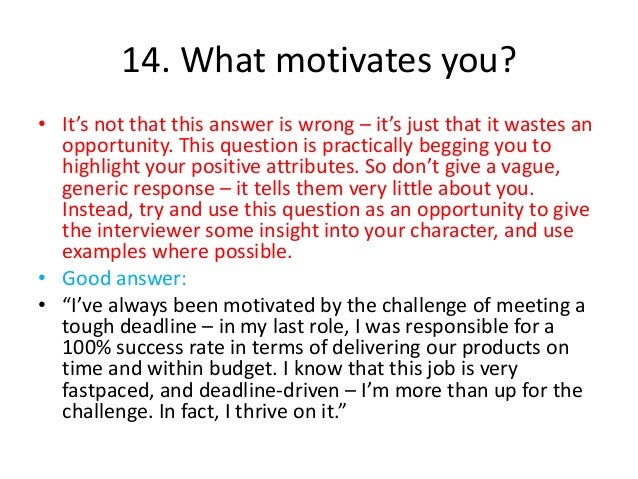How To Answer What Motivates You In Life

Job interviews can be daunting, and the question "What motivates you?" often throws candidates off balance. Mastering a concise and compelling answer is crucial to landing your dream role.
This article provides a framework to articulate your motivations effectively, showcasing your alignment with the company's values and demonstrating your genuine passion.
Understanding the Question
The interviewer isn't just seeking a generic response. They want to understand your core values and how they translate into workplace performance. They also want to know if you have self-awareness.
According to a recent study by LinkedIn, 65% of hiring managers consider "cultural fit" more important than skills when making hiring decisions. Your motivations directly reflect this fit.
The Framework: The STAR Method & Beyond
While the STAR (Situation, Task, Action, Result) method is traditionally used for behavioral questions, it can be adapted here. It helps structure your answer and make it memorable.
Begin by identifying a specific situation where you felt particularly motivated. Describe the task at hand and the actions you took.
Finally, highlight the positive result and, most importantly, connect it back to your underlying motivation. What drove you to excel in that situation?
Identifying Your Motivators
Common motivators include: achievement, learning, helping others, creativity, and recognition. Consider what genuinely excites you.
Reflect on past experiences: when have you felt most engaged and fulfilled? What were the driving factors behind your success?
For example, if "learning" is a key motivator, you might describe a project where you rapidly acquired new skills and delivered exceptional results.
Tailoring Your Response
Generic answers will fall flat. Research the company's values and culture. Identify aspects that resonate with your own motivations.
Connect your motivations to the specific role you're applying for. How will your drive contribute to the company's goals?
A Sales role requires that someone is motivated by winning and achieving targets while a creative role requires that someone is motivated by solving problems and bringing new ideas.
Example Answers
Scenario 1: Achievement “I am motivated by achieving challenging goals. In my previous role at XYZ Company, I exceeded my sales target by 15% by implementing a new outreach strategy. This success fueled my drive to continuously improve and contribute to the company's bottom line.”
Scenario 2: Learning “I thrive on learning new things. When our team transitioned to a new software platform, I took the initiative to learn it inside and out, then trained my colleagues. The feeling of mastering something new and helping others become proficient is incredibly rewarding.”
Things to Avoid
Never mention money or perks as your primary motivators. This suggests a lack of genuine passion.
Avoid vague answers like "I'm motivated by success" without providing concrete examples. Don't sound like a robot.
Be honest. Authenticity is key. Interviewers can spot insincerity.
The Takeaway
Mastering the "What motivates you?" question requires introspection, preparation, and genuine self-awareness.
By using the STAR method and tailoring your response to the specific company and role, you can showcase your passion and increase your chances of landing your dream job.
Continue practicing and refining your answer to ensure you deliver a confident and compelling message that resonates with the interviewer. Don’t underestimate your own potential.

